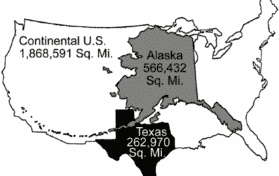
Because of the new ranked voting system in Alaska, both incumbent Republican Lisa Murkowski and her primary challenger Kelly Tshibaka will advance to the general midterm election ballot in November.
Alaska only recently implemented a new voting system, a ranked voting system, in which the top four candidates on Tuesday’s primary ticket will advance to the general election.
So, how does this new system work, and will it help Murkowski to keep her Senate seat in November?
Voters in Alaska now have the option to “rank” their preferred candidates in numerical order – 1, 2, 3 and 4. The “1” choice of voters will be counted first. If the “number one” candidate choice doesn’t get 50 percent of the overall vote, then the candidate with the fewest number 1’s by their name will be eliminated. The ballots with the removed candidate listed as the voter’s first choice will then be counted for the “number 2” candidate. If there is still no majority winner, the process will then be repeated until there is a majority winner.
Sound confusing? For those of us who have always voted under a primary system, the new system might be. Think of it as a club voting for their leaders. If nineteen people are contending for a particular role (there were 19 people in Alaska – from multiple parties), then the ranked voting system might also be employed. Alaska isn’t the first state to adopt this type of voting system, however. Maine began using a ranked system in 2018.
Alaskans will use the same system in November in the general election, and both Murkowski and Tshibaka will be on the general ballot for the midterms.
As of this writing, the other two candidates who will appear on the ballot in November have not been named.
While Liz Cheney got a handy defeat in Wyoming, incumbent Lisa Murkowski – who, like Cheney, also voted to impeach Trump in 2021 – actually led the vote count over Tshibaka.
Kelly Tshibaka is a Trump-backed candidate; she garnered 40 percent of the vote while Murkowski won 44 percent. Tshibaka is an Alaska native; she earned a law degree from Harvard. Tshibaka was most recently a commissioner of administration. Tshibaka is considered highly conservative; a website for her campaign describes her as pro-life and pro-Second Amendment.
Tshibaka has described Murkowski as a “Washington insider,” and she points to the fact that Murkowski was appointed to fill her father’s vacant seat in the U.S. Senate when he won the governor’s race in 2002. During Donald Trump’s presidency, Murkowski could almost always be counted on to vote against a piece of legislation considered a part of the “Trump agenda,” including a repeal of the Affordable Care Act. Murkowski also noted publicly that she would not vote for Trump in the 2016 election after an audio tape of Trump making lewd comments regarding women surfaced. Murkowski also publicly said that President Trump should resign after the January 6 riot on Capitol Hill.
Murkowski also voted against the confirmation of Supreme Court nominee Brett Kavanaugh. Kavanaugh was nominated by Trump in 2018. His confirmation hearings are among some of the most contentious since that of Justice Clarence Thomas in the early 1990s.
Trump has described Murkowski as “the worst. I rate her No. 1 bad.”
While Trump’s opponents – even in the Republican Party – have been quick to say that there was no fraud in the 2020 election, Tshibaka handles questions of that nature in a neutral manner.
Tshibaka told CNN “In the 2020 election, there were questions raised in several states, and we’re not allowed to look into the questions of those allegations to see what actually happened.”
Some political pundits have pointed out that this type of response has been beneficial to multiple Republican candidates, including Virginia’s Republican governor, Glenn Youngkin.
Ultimately, November’s vote will determine who will represent Alaska in the Senate after January 2023.





